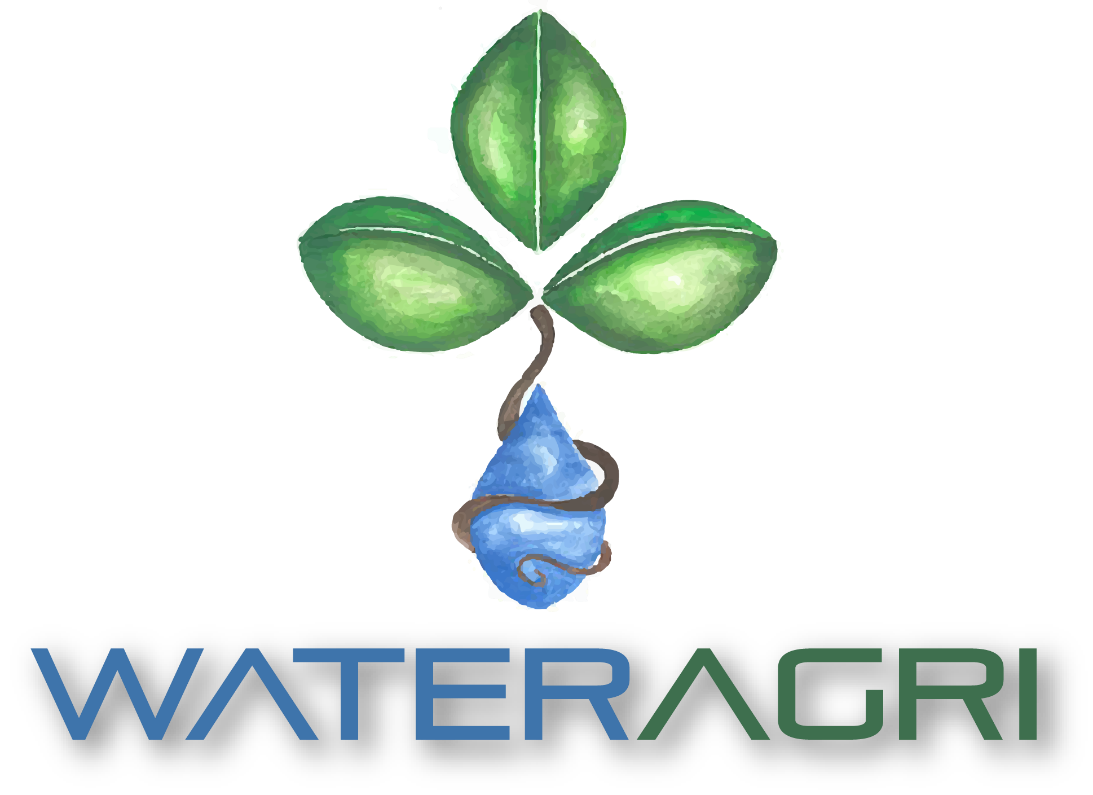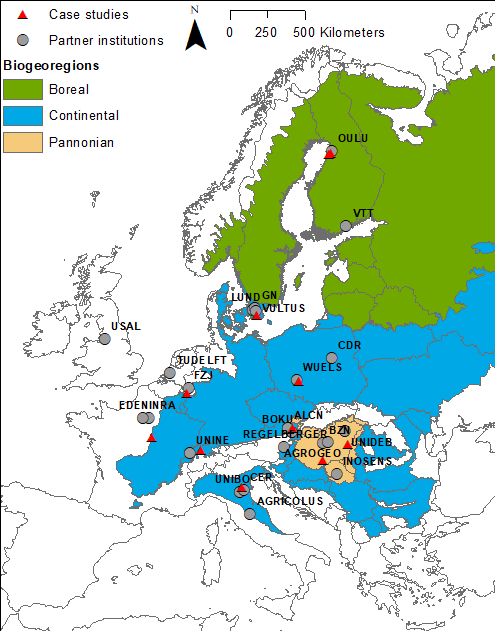
The WATERAGRI project is about researching the new frontiers in integrated water resources management of small agricultural catchments to improve both European agricultural production and the status of local ecosystems. Our consortium is committed to significantly improve agricultural water management.
Prof. Miklas Scholz, WATERAGRI Coordinator
What is the problem?
Tackling of both quantity and quality of water in small agricultural catchments has been overlooked in Europe. Hydrological processes and interactions have not been analysed in detail. Natural water retention at a small scale has not been addressed properly. Equally, the local impact of climate change or/and changes in local micro-climate has not been analysed in an integrated way with other challenges of small scale catchments. A sufficient supply of water for sustainable crop production might become more important in the coming years. At the same time, a number of underutilised new techniques of water management (natural/small water retention, nutrients recovery from streams, etc.) should be re-introduced after sufficient testing into agricultural management for the benefit of farmers, local communities and the environment.
What is the project about?
WATERAGRI is a new H2020 Research & Innovation project worth EUR 7,000,000, starting in May 2020 and lasting for 4 years. The project aims are to re-introduce and enhance sustainable solutions for water retention and nutrient recycling to enable agricultural production that can sustain growing populations and cope with present and future climate change challenges. The project will generate a deeper, more detailed and integrated understanding of the hydrological processes shaping water resources in Europe. To achieve these ambitious aims, WATERAGRI will further develop traditional drainage and irrigation solutions and re-introduce nature-based solutions such as integrated constructed wetlands, bio-inspired drainage systems and sustainable flood retention basins in the agricultural landscape, leading to better retention of both water and nutrients. WATERAGRI will evaluate specific water and nutrient retention needs with the farming community, develop a set of affordable and easy-to-implement technologies, test them in the field and deploy a sound business framework for their effective use by the farming community.
Who is behind the project?
The WATERAGRI consortium consists of a group of 23 partners from 12 European countries who teamed up under the lead of Lund University (Sweden). Among the partners, there are 4 and 3 world-leading water retention and nutrient capture experts, respectively, from prominent European water and soil research institutions and centers as well as international experts on stakeholder engagement and communication. The WATERAGRI project is expected to start in May 2020 and will last 4 years.
Which novel technologies are going to be developed during the project?
WATERAGRI will develop a decision-support framework for the farming community and a set of individual water retention and nutrient recovery solutions.
- The WATERAGRI decision-support framework includes 6 mathematical models to facilitate decision-making in real situations with different functionalities such as system analysis and optimisation of, for example, irrigation scheduling and fertilisation. The framework will be supplemented by a serious gaming component enabling simulation and quantification of technical, economic and environmental impacts of a farmer’s decision.
- WATERAGRI water retention solutions will bring 8 innovative and sustainable technologies to European farmers, including farm-constructed wetlands, remote sensing pipeline, irrigation and agrometeorological monitoring and biochar for water retention.
- WATERAGRI nutrient recovery solutions will also offer 5 advanced and nature-based technologies including farm constructed wetlands for nutrient recovery, drainage systems, bio-based membranes, biochar adsorbents and microfluidics.
What is the geographical scope of the project?
The project activities will include 10 important case studies with focus on specific biogeographical regions of Europe: Boreal Zone (Finland and parts of Sweden), Continental Zone (Poland and parts of Sweden, France, Germany, Switzerland, Austria and Italy) and Pannonian Zone (mainly Hungary). Here, the economically sustainable WATERAGRI technologies will be tested and deployed for different land use and crop types from grass production and pasture to organic and conventional (fruit) farming. The test field sizes will vary from 1 ha up to 1000 ha.

